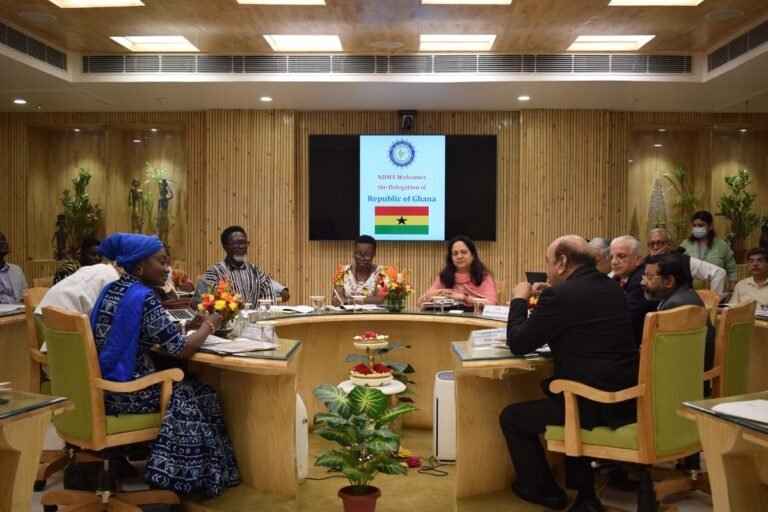In an initiative aimed at strengthening disaster management capabilities, the governments of Ghana and India have embarked on a collaborative knowledge exchange and technology transfer program.
Led by Ghana’s Deputy Minister for Communications and Digitalisation, Ms. Ama Pomaa-Boateng, a 17-member delegation has embarked on an eight-day mission in India, focusing on Early Warning Systems for Emergency Preparedness and Response.
The mission, scheduled from November 15th to 24th, 2023, is being hosted by the National Disaster Management Authority (NDMA) under the Ministry of Home Affairs, Government of India.
Objectives and Impact
Ms. Pomaa-Boateng emphasized that the collaborative effort aligns with Sustainable Development Goal 17 (SDG-17) and aims to enhance the IT and operational infrastructure of Ghana’s National Disaster Management Organisation (NADMO). Specifically, this initiative seeks to fortify the capabilities of the 22 Emergency Operation Centres (EOCs) distributed at regional and district levels.
Given the similarities in climate-induced weather-related challenges faced by both Ghana and India, the program addresses the pressing need for capacity development and technological advancements in forecasting solutions, early warning systems, and overall operational efficiencies for emergency management.
Program Highlights
The knowledge exchange and technology transfer mission will cover various crucial areas:
1. IT Emergency Preparedness and Response Assessment: Evaluation of the Emergency Operation Centers (EOCs) of NADMO throughout Ghana.
2. Emergency Telecommunications Preparedness and Response Capacity Strengthening Workshop: Focused on enhancing communication capabilities in emergency situations.
3. South-South Knowledge Sharing and Technology Transfer: A week-long program designed for observation, learning, and technology transfer, showcasing India’s expertise in disaster management.
Contributing to SDG-17
By fostering collaboration between Ghana and India in the realm of disaster management, this initiative not only addresses the immediate needs of NADMO but also contributes to the broader global agenda outlined in SDG-17. The partnership underscores the shared commitment to building resilient systems and leveraging technology for effective emergency preparedness and response.
As the delegation delves into this exchange program, the outcomes are anticipated to strengthen the foundation for disaster management in Ghana, fostering long-term resilience and cooperation between the two nations.




